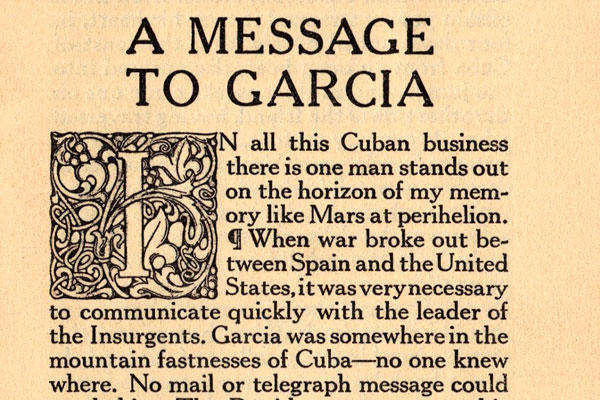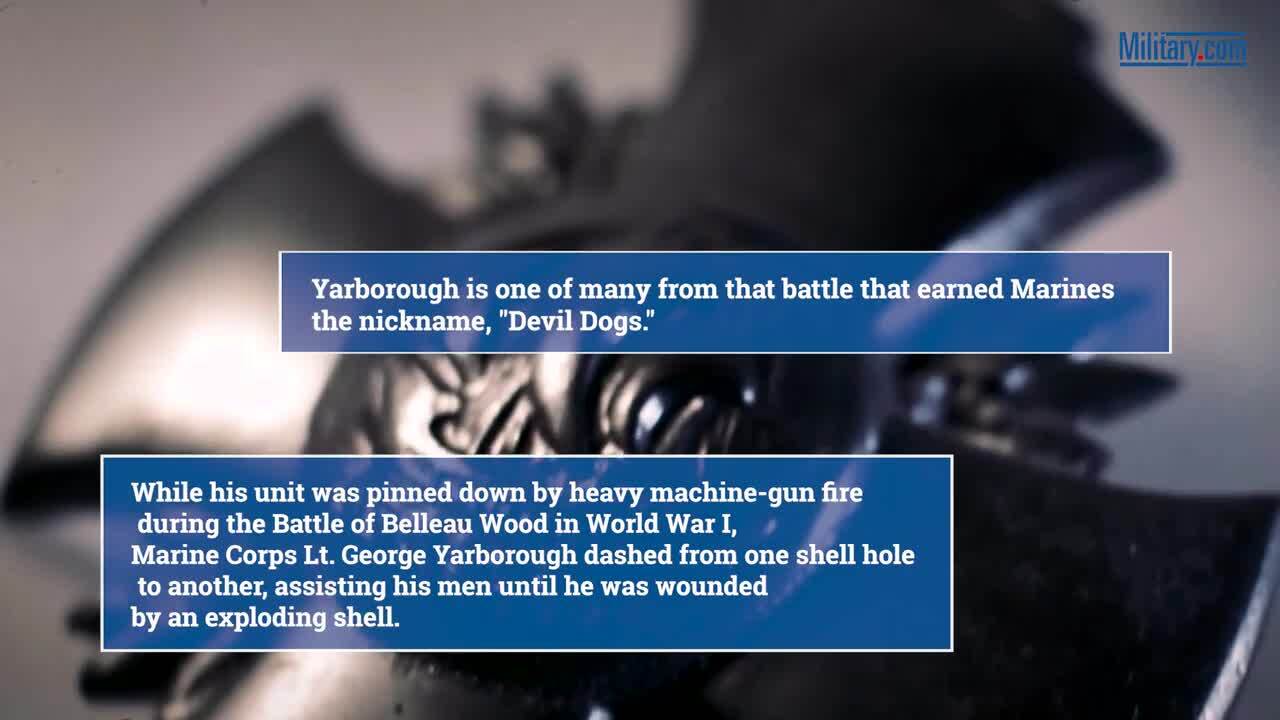The new version of the Marine Corps Commandant's professional reading list is out, and one title is conspicuously absent.
For the first time since the list debuted in 1989, "Message to Garcia" is nowhere to be found on it.
The 42-page essay penned by Elbert Hubbard in 1899 tells a simple story of a US military officer tasked with delivering a message to the remote leader of the Cuban rebels on the eve of the Spanish-American war. It has been hailed as an example of obedience to orders and task accomplishment, and reportedly is a favorite of former Florida governor and recent presidential candidate Jeb Bush.
But in an essay published in the February issue of the Marine Corps Gazette, Marine Gunnery Sgt. Joseph Conroy argued it was time to take "Message to Garcia" off the list for good. The literary work, he argued, reinforces the wrong kind of ideas about leadership and how to follow orders.
Conroy takes issue with the essay's central premise, which encourages troops to complete tasks without asking questions.
"This unquestioning moral is particularly interesting for leaders who are reading the essay, as it raises questions itself," he writes. "Namely, 'Why didn't the soldier ask how or why?' and 'What can I do to replicate that kind of unquestioning confidence in my subordinates?' Sadly, the test of the essay itself stops short of answering these questions."
The essay, Conroy continues, isn't even historically accurate, and is challenged on key points by the account of the officer himself, Army 1st Lt. Andrew Summers Rowan.
"As leaders of Marines in the 21st century, we are in a unique position to leverage the education, versatility, and intellect of our subordinates," Conroy concludes. "Rather than shunning questions, we must teach Marines how and when to ask questions and embrace questions through the training and mentoring process in order to eventually deploy Marines who are confident in their leaders, their tactics, and their mission."
Reached for comment by Military.com, Conroy, now serving as a systems integration chief for Marine Corps Communications-Electronics School, declined to elaborate further.
"While I'm obviously excited to have possibly influenced change in the professional reading program, and hoping that this isn't the most epic April Fool's joke that the Marine Corps has ever pulled on me, I think I'd prefer to let my essay stand mostly on its own," he said in an April 1 email.
A spokesman for Commandant Gen. Robert Neller, Lt. Col. Eric Dent, said the change didn't come about as a result of the editorial. Neller had removed the essay from the "Commandant's Choice" section, where it had been under previous commandant Gen. Joseph Dunford's tenure, Dent said, and it was dropped from the list entirely as a result.
Neller's "Commandant's Choice" section features the US Constitution, the Marine Corps publication "Sustaining the Transformation," and retired Lt. Gen. Victor Krulak's leadership study, "First to Fight."
The reading list is divided by career level, with separate lists at each level for officers and enlisted troops. Marines are expected to read a minimum of three books per year at their designated level.
Other notable additions to the list are the science fiction novel "Ghost Fleet," which Neller has publicly recommended to Marines as a glimpse into the high-tech warfighting future; and former Marine public affairs officer Phil Klay's short story collection "Redeployment," which received the 2014 National Book Award for fiction.
The book list has also added two new professional categories: Cyberwarfare and Security, said Maj. Anton Semelroth, a spokesman for Marine Corps University. In all, the updates to the list included the addition of 36 new titles and the removal of 31 old ones, he said.
"All existing titles are reviewed and recommended additional titles that have been received in the preceding two years are considered for inclusion to the list. The criteria used to determine the updated reading list include availability, impact, readability, scholarly merit, suitability and timelessness," he said in an email.
The biannual list review process takes about six months to complete, he said, and the commandant has final review and approval.
--Hope Hodge Seck can be reached at hope.seck@military.com. Follow her on Twitter at @HopeSeck.
Related Video:
Semper Fi Always Faithful

























